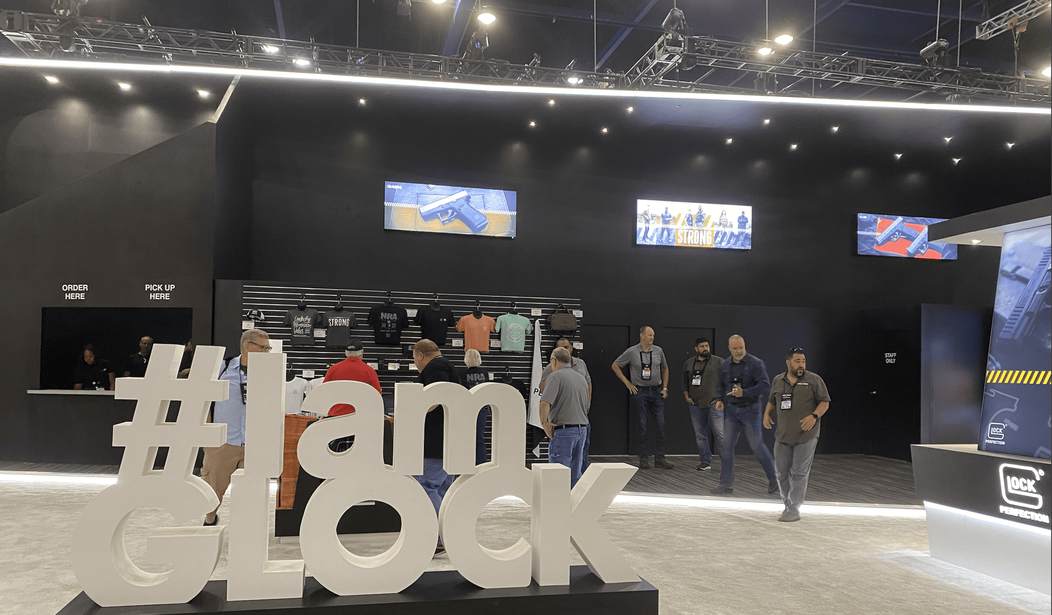A New York law signed by then-Gov. Andrew Cuomo in 2021 that allows for gun makers, distributors, and retailers to be sued under the state’s public nuisance law when a firearm is used in a crime was upheld last week by a federal judge, and while the challenge from the National Shooting Sports Foundation and several firearms manufacturers is being appealed, as of now the law remains in effect and is being put to use by the attorneys for one of the victims of the recent shooting on a New York City subway.
The new lawsuit, filed on behalf of 49-year old Ilene Steur, claims that Glock’s marketing and business practices have “endangered the public health and safety” by marketing and selling their firearms “”with reckless disregard for human life and for the peace, tranquility and economic well-being of the public.”
The suit alleges that Glock’s business plan and marketing materials “appeal to prospective purchasers with criminal intent,” though it oddly starts off with a quote from the gun company’s founder Gaston Glock talking about marketing to law enforcement and not law-breakers; “It was a conscious decision to go after the law enforcement market first. In marketing terms, we assumed that by pursuing the law enforcement market, we would receive the benefit of ‘after sales’ in the commercial market.”
The lawsuit goes on to claim that those commercial sales should never have taken place, and that by selling to civilians Glock “chose to disregard the unreasonable risks of the Glock firearm in its marketing strategies.”
Upon information and belief, Defendants, as makers and sellers of the subject Glock firearm, have, like all Americans, become aware that mass shootings become a frightening yet predictable part of modern life.
Upon information and belief, Defendants know that, as a consequence selling Glock firearms to the civilian market, individuals unfit to operate these weapons gain access to them.
Upon information and belief, the defendants are aware that their Glock design which promotes concealment and firearm’s firepower, unsuited to personal defense or recreation, enables an individual in possession of the weapon to inflict unparalleled civilian carnage.
Upon information and belief, despite that knowledge, defendants continued and continues to market and distribute the Glock firearm to the civilian market.
Upon information and belief, in order to continue profiting from the sale of Glock firearms, including the subject Glock firearm, defendants chose to disregard the unreasonable risks of the Glock firearm in its marketing strategies.
That’s right. Glock shouldn’t be able to talk about concealed carry, even though 42 states are “shall issue”, 25 states don’t require a permit for legal gun owners to carry, and even in the eight “may issue” states there’s at least a theoretical possibility of someone being able to lawfully carry a concealed firearm. They can’t talk about the stopping power of their gun, even though the primary reason why people purchase handguns is for self-defense. In fact, the lawsuit claims that Glocks are “unsuited to personal defense,” which would come as a surprise to the Glock owners I know.
It’s not hard to see why the firearms industry called the New York law an existential threat when it was first introduced in the state legislature last year. As written, gun makers are held responsible for the third party actions of criminals even if a particular firearm used in a crime was stolen or lawfully sold to someone (as was the case in the subway shooting, where the suspect legally purchased a Glock handgun from a pawn shop in 2011).
Note as well that this law is specifically targeted at the firearms industry. In New York State, more than 4,000 residents lose their lives to excessive alcohol use every year, but there’s no law in place holding brewers and distillers responsible for the criminal misuse of their products. Instead, anti-gun politicians have crafted a statute that’s intentionally designed to target gun companies and put them out of business by blaming them for the actions of violent felons. The consequences of this law could reach far beyond New York’s borders, and if not overturned by the courts would indeed pose an existential threat to both the firearms industry and those Americans who want to be able to lawfully purchase a gun in the future.









Join the conversation as a VIP Member